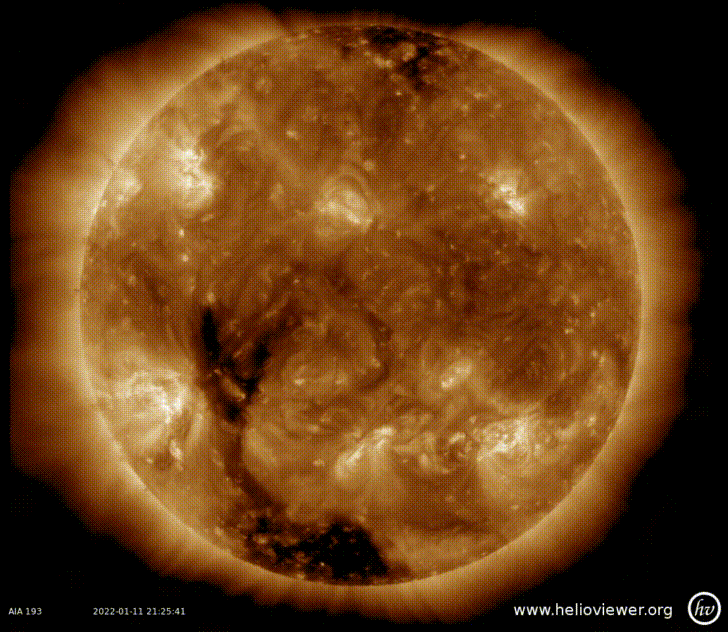Space Weather Alert - 14th January 2022
What Has Happened?
A southern coronal hole reached an Earth facing position on the 13th January 2022. The initial arrival of the coronal hole high-speed wind stream is anticipated on Saturday 15th January. This will cause the geomagnetic activity to increase significantly from ambient levels. We expect this enhanced activity to gradually decrease toward the end of the weekend and the beginning of next week.
On the previous solar rotation (approx. 28 days ago), effects from this coronal hole led to minor geomagnetic storm (STORM G1) conditions on the 19th December 2021. Hence, the Earth may again experience geomagnetic storm conditions this weekend with a possibility of an isolated moderate storm (STORM G2) event.
Assuming clear, dark skies, there is a greater chance of seeing the aurora throughout the weekend. Those in Scotland, northern England and Northern Ireland have the better chance if the weather is favourable on the 15th and 16th January.
Sign-up to receive Geomagnetic Disturbance Alert emails.
Follow us on Twitter:
Follow @BGSauroraAlert for more occasional aurora alerts.
Follow @BGSspaceWeather for daily space weather forecasts.
Glossary
- BGS
- The British Geological Survey is one of the Natural Environment Research Council's Research Centres.
- Coronal Hole
- A region in the Sun’s outer atmosphere (corona) where hot material can flow unrestrained by its magnetic fields out into space.
- Solar Wind
- The ever-present expansion of the Sun’s hot outer atmosphere into the solar system, which carries space weather within it.


